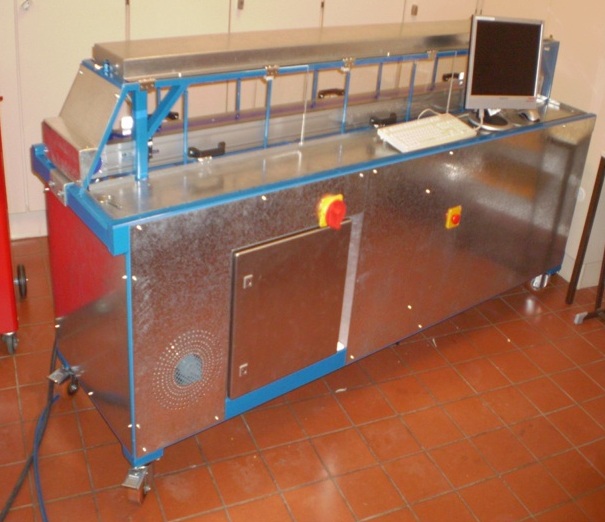2007 / 2008
Friction Test-Bench
Graduation year
Customer
Röchling Leripa Papertech GmbH & Co. KG
Graduates
Erlinger Florian
5BAT
Lindorfer Stefan
5AAT
Hopfner Bernhard
5AAT
Hackl Benjamin
5BAT
Supervising tutors

Felhofer Hubert

Kaufmann Gerhard

Keplinger Johann
Customers request
The company Röchling Leripa Papertech Ltd from Oepping 100, A-4150 Rohrbach produce plastic parts for paper production machines. The company approached the HTBLA Neufelden with the request for a machine which could compare the frictional coefficient of differing materials.
The reason for their request was that Leripa was often asked by clients how the frictional performance of the Leripa-own plastics compared with customer products (steel, other plastics, glass, stone, wood etc.).
Since Leripa’s own provisional testing machine suffered from a high level of inaccuracy and the results were unconvincing we were entrusted with the task of designing and manufacturing a machine which could best fulfil this task.
Project objectives
- To design a machine to determine the frictional coefficients of various materials.
- Whereby following points had to be taken into consideration:
- The highest possible relative velocities between the two frictional materials
- Largest possible variety of typical material combinations to be used when testing.
- Largest variety of typical material size combinations to be used when testing
- If possible, consistent testing conditions for all the materials selected
Furthermore, the following points should also be ensured:
- Repeat accuracy of tests should be, as far as possible guaranteed
- Accuracy to be measured between 100th to 1000th (about 1%)
- Graphical readout of the resulting measurements
- Evaluation hard copy (via printout on PC)
Project outcome
The completed machine was handed over to the client in June 2008.
All measurements made up to the present time have been highly satisfactory and met all expectations.
System description
The test bench measures 2 forces and calculates the resulting frictional coefficient based on information obtained from 2 load cells.
The movement between the test materials is obtained by means of a linear axle which is driven by an 11 kW motor via a toothed belt.
A frequency converter controls the motor and controls the huge acceleration forces generated.
In addition, a rotary encoder in the motor regulates the approach to the pre-defined measuring positions.


